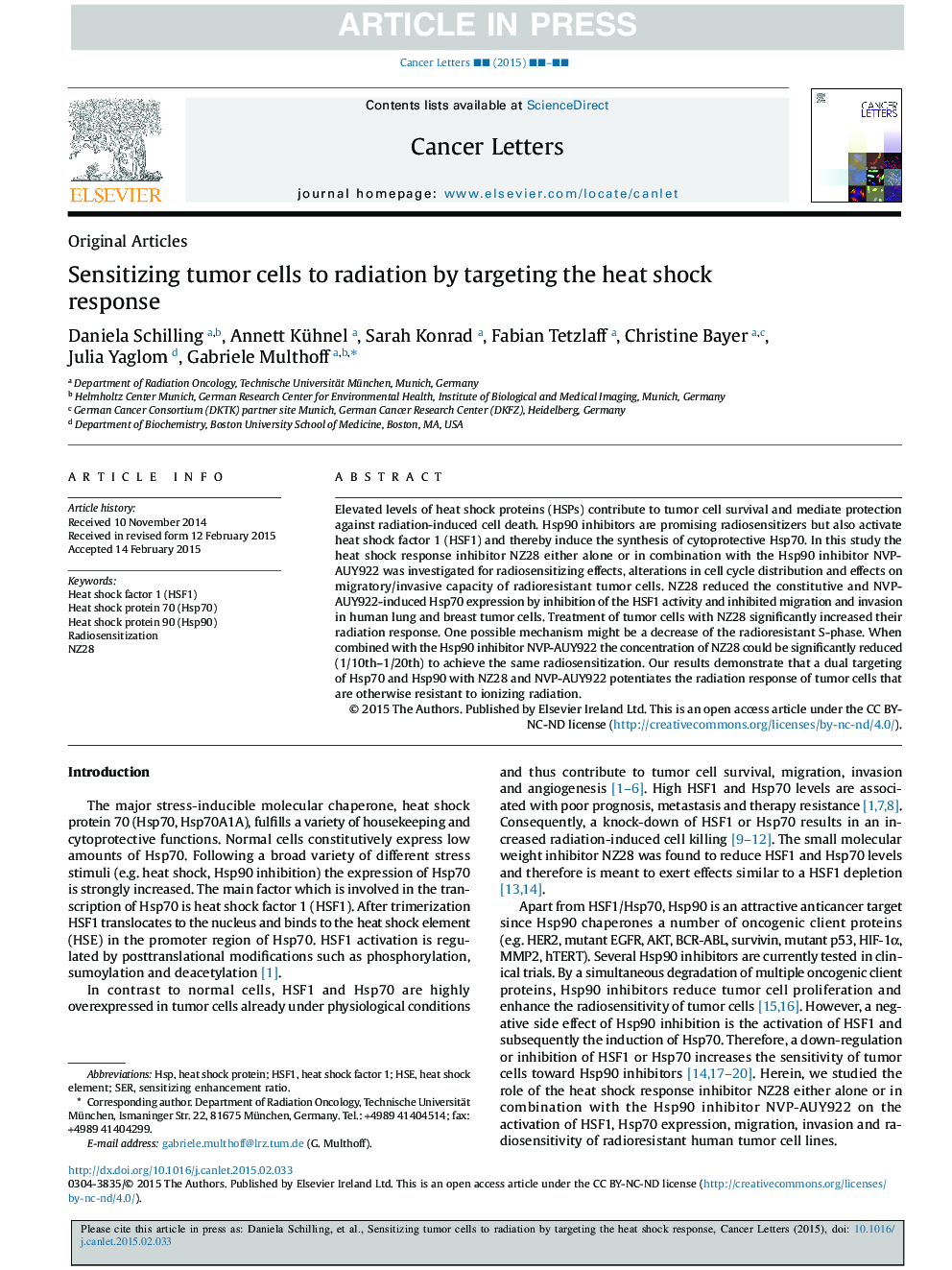| Article ID | Journal | Published Year | Pages | File Type |
|---|---|---|---|---|
| 8435568 | Cancer Letters | 2015 | 8 Pages |
Abstract
Elevated levels of heat shock proteins (HSPs) contribute to tumor cell survival and mediate protection against radiation-induced cell death. Hsp90 inhibitors are promising radiosensitizers but also activate heat shock factor 1 (HSF1) and thereby induce the synthesis of cytoprotective Hsp70. In this study the heat shock response inhibitor NZ28 either alone or in combination with the Hsp90 inhibitor NVP-AUY922 was investigated for radiosensitizing effects, alterations in cell cycle distribution and effects on migratory/invasive capacity of radioresistant tumor cells. NZ28 reduced the constitutive and NVP-AUY922-induced Hsp70 expression by inhibition of the HSF1 activity and inhibited migration and invasion in human lung and breast tumor cells. Treatment of tumor cells with NZ28 significantly increased their radiation response. One possible mechanism might be a decrease of the radioresistant S-phase. When combined with the Hsp90 inhibitor NVP-AUY922 the concentration of NZ28 could be significantly reduced (1/10th-1/20th) to achieve the same radiosensitization. Our results demonstrate that a dual targeting of Hsp70 and Hsp90 with NZ28 and NVP-AUY922 potentiates the radiation response of tumor cells that are otherwise resistant to ionizing radiation.
Keywords
Related Topics
Life Sciences
Biochemistry, Genetics and Molecular Biology
Cancer Research
Authors
Daniela Schilling, Annett Kühnel, Sarah Konrad, Fabian Tetzlaff, Christine Bayer, Julia Yaglom, Gabriele Multhoff,
